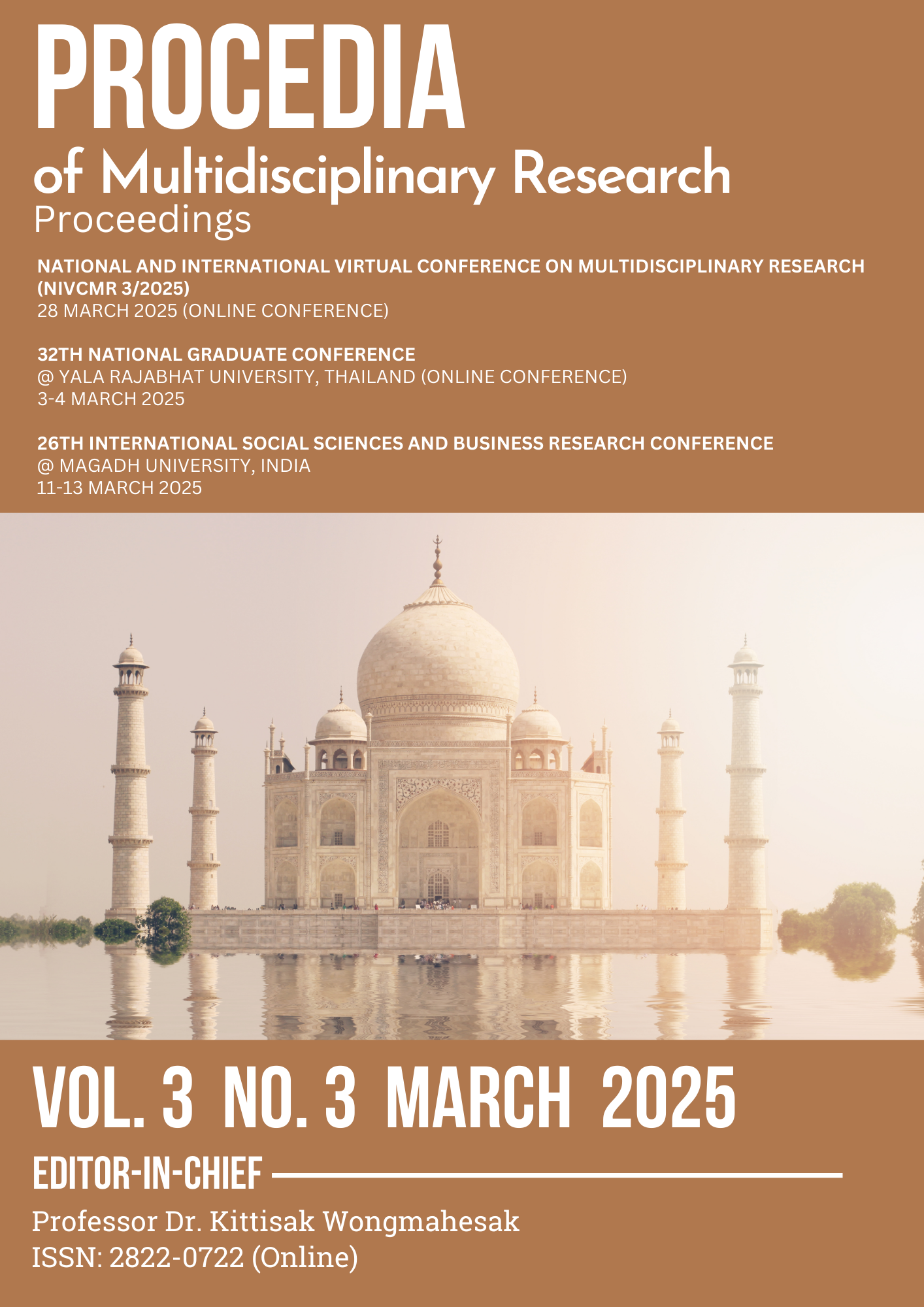TRUST IN AI-GENERATED INFORMATION AMONG UNDERGRADUATE STUDENTS AT KASETSART UNIVERSITY
Abstract
This study aimed to: 1) assess the level of trust in AI-generated information among undergraduate students at Kasetsart University, 2) compare the trust in AI-generated information based on demographic factors, and
3) explore the correlation between AI’s knowledge and understanding and the trust in AI-generated information among undergraduate students at Kasetsart University. The sample comprised 305 undergraduate students enrolled in the second semester of the 2024 academic year. Questionnaires were used to collect data, which were subsequently analyzed using frequency, percentage, mean, standard deviation, t-tests, One-Way ANOVA with Scheffé post hoc comparisons, and Pearson product-moment correlations (α = .05). The results showed a high trust in information generated by AI (mean = 3.81, SD = .63). In particular, across the categorical areas, the sample showed high trust in AI’s modernity (mean = 3.99, SD = .64) and impartiality (mean = 3.90, SD = .68), while trust in AI’s accuracy remained moderate (mean = 3.54, SD = .76). Hypothesis testing indicated a statistically significant difference in trust based on sex, whereas no significant differences were found concerning year of study, English proficiency, and GPA. Furthermore, AI’s knowledge and understanding demonstrated a weak positive correlation with trust in AI-generated information (r = .275).
Downloads
Published
Issue
Section
License

This work is licensed under a Creative Commons Attribution-NonCommercial-NoDerivatives 4.0 International License.







.png)


